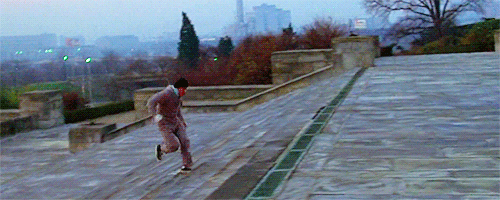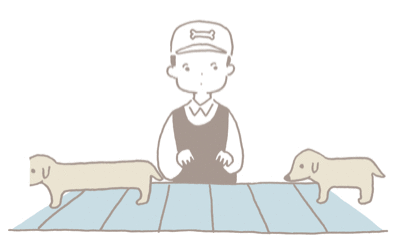Recap: Tom Swindell’s How To Swindell Your Way Into Television
Tom Swindell, TV and documentary powerhouse shared some top secret tips on working and getting into the doc and TV scene at Rife’s Masterclass. Here’s what he shared.
Right off the hit of the bat, Swindell described the TV and documentary lifestyle as a tricky one. You have to understand that working in this environment can involve you having to be prepared for the unknown. Or other times it can involve you spinning many different plates at the same time.
Build your portfolio, skills and knowledge by doing your own shoots or shadowing others on theirs. That’s how you get experience under your belt.
Always ask for a showreel or portfolio
One thing to remember when being taught about production or when you’re looking to recruit a crew for your production team, it’s completely okay to ask for people’s portfolios. That’s the best way to find out if you’re going to get what you want out of it when working with that someone. Rather than working with someone who doesn’t really know what they’re doing.
Get out there and network with the World
Sometimes networking can be an incredibly daunting task. Swindell put emphasis on it being something you have to do. Due to the opportunities that could possibly arise from it, you’ll have to take the risk and get out of your comfort zone.

source: imgur.com
It’s always a good idea to give your work out everywhere, both online and offline, you never know who will have a look at it and yes, that includes putting up your content on YouTube and Vimeo.
A lot of people look at the creative industry as if it’s a ‘who you know, not a what you know’ society. Although Swindell says this is partly true, he also partly disagrees with it stating that if you graft and be a nomad and get your name around into productions, you’ll be able to leech off of your surroundings.
Swindell also mentioned that this all can take quite a bit of confidence, so build it, network, talk and take pride in your work.
He also gave a huge shout out to Bristol as its creative side is booming in inspiration and springboarding people into careers (woohoo).
Learn to budget in different situations
There’ll be times where you’ll have to be humble with expenses.

Source: theroyaltenenblarghs.tumblr.com
When working for smaller production companies, accurate budgeting is a must. Every penny should be accounted for and there should be awareness or signing off all costs. But there are other times when you can afford to spend a little more dosh, like when working for a branded company who have humongous wallets.
When you go independent it can sometimes involve working in weird conditions, but working for brands means a bit of luxury. Be prepared for both and switching minds and circumstances.
You’re going to have to work harder than ever
Be reliable, be on time and be that person who can be counted on for any job, be that guy/girl.

source: david-30.tumblr.com

source: david-30.tumblr.com
Work everywhere, do small jobs, do big jobs. Be a bit of a yes-man when it comes to work.
Even if you don’t get paid for doing the work, you’ll at least get the experience, reputation and skill. And in most situations that can be even more valuable.
Once you start making good clean content, engage with surrounding and local organisations and prepare to travel.
It’s a hard world, and it can be constant leaps of faith, but get your work good, and you’ll be good.
Commuting to shoots or the office can be ridiculously tedious and stressful at times, but stick it out, unfortunately that might be part of the package. Places like London is well-known for this, but it can be very rewarding if you do make a name for yourself there.
One thing to note, for all those who have heard famous stories of the obligatory move to London, that actually isn’t true. It doesn’t have to be the place you start up at, and you shouldn’t be scared of the prices either, although it costs more to live up there, you’d also likely be on a higher rate of pay there too.
Make A Name For yourself in the industry

source: feiyueloplainshoes.tumblr.com
When starting up or looking to build experience, you don’t necessarily have to have journalistic skills or knowledge in film if you’re practical and working under someone else’s project.
A lot of people are scared about qualifications and paperwork, but as mentioned it is more about experience and portrayal. Most companies won’t care much about your degree, if you can honestly pull of an ace showreel and good accreditation, then you are sorted.
work in a team, as a team

source: blazepress.tumblr.com
Don’t think you have to be individual and take it all on alone. Find your team, bring people together, make your team, your brand and make your self heard there. Share it out. More hands, more work.
If you can find a dedicated and motivated bunch of people who you know you can rely on, learn together and work as one instead of being a lone wolf, productions can work better when the work load is spread.
Concept > Ideas > Product

source: beautriurainbow.tumblr.com
Here’s a typical formula to making a concept a finished product:
– Research and find similar products to your idea, that’s a great way to gauge the quality of where your production should be, or how much better you can be.
– Meetings, meetings and meetings. Both with your team and contributors. You’ll need to make sure you’re all on the same wavelength.
– Know your role, if you’re not feeling comfortable with you role, change it. There’s not much point trying something you’re completely in the dark about, or doing a role you’re not confident in. You may let your team down.
– Build your funds. Ask for contributors to chip in, ask your team to chip in, you chip in.
– Production. Start making things happen. Plan out your shoot, and start ticking boxes.
– Go forth and conquer.
Hope that helped you as much as it helped us.
If you want to find out more about Tom Swindell check it out here. Did you find this masterclass round up helpful? What other subjects would you like our classes on? Let us know at: @rifemag (on Twitter/Instagram/Tumblr) or at Rife Magazine (on Facebook)
Related Links:
‘Sound Set!’: The Film Industry Needs Audio










